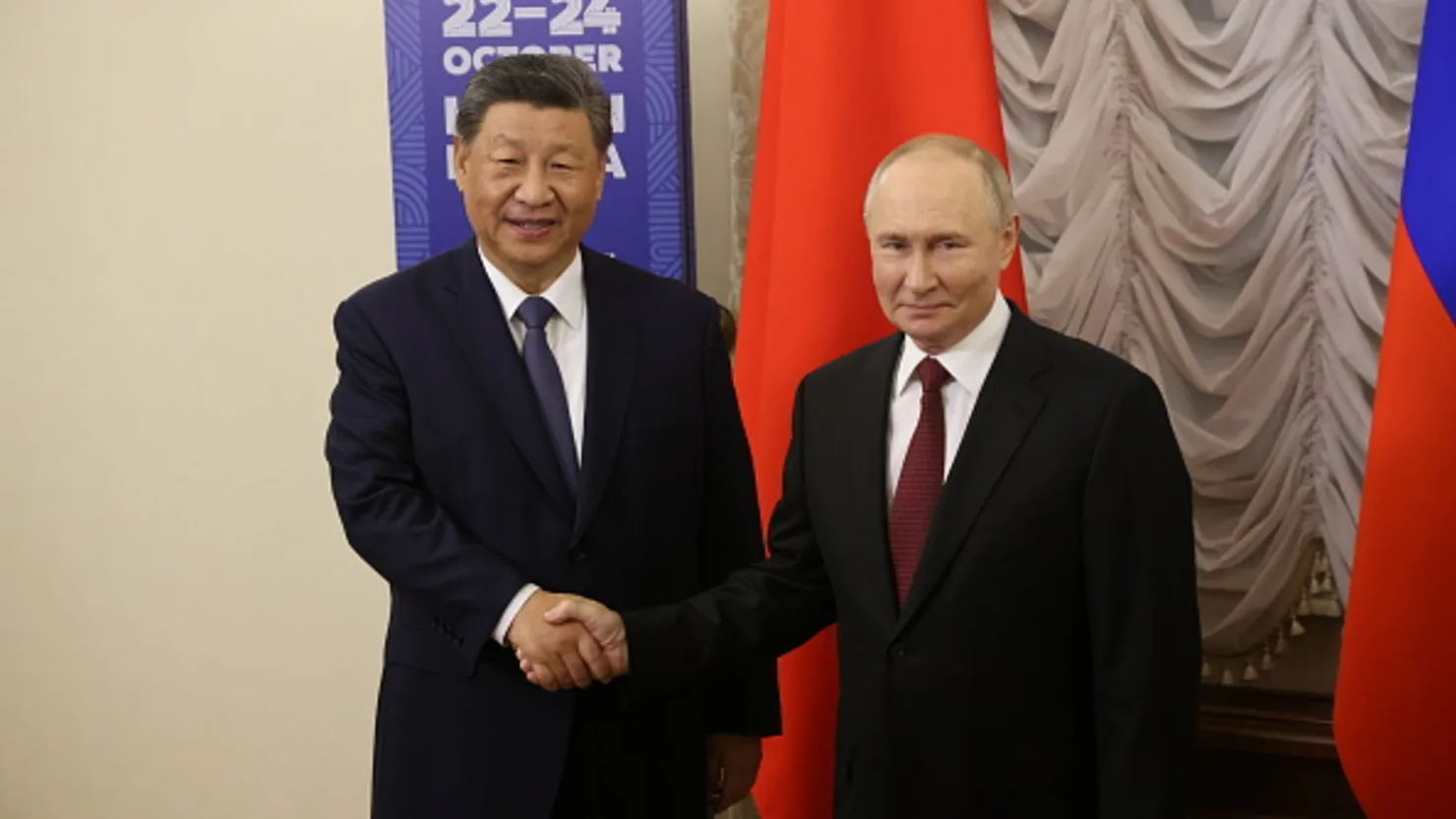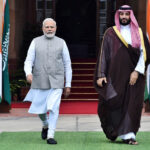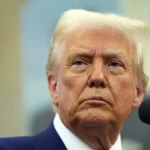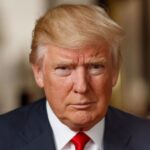Chinese President Xi Jinping reaffirmed the strength of China’s relationship with Russia, emphasizing that their “profound” partnership would remain unchanged despite global geopolitical shifts. Xi made the remarks during a meeting with Russian President Vladimir Putin at the opening of the BRICS summit in Kazan, Russia, on Tuesday.
In his address, Xi acknowledged the “momentous transformations” occurring globally, noting the fast-evolving and turbulent international landscape. However, he expressed confidence that the deep-rooted friendship between China and Russia would endure.
Putin echoed Xi’s sentiment, hailing the Russia-China partnership as “one of the main stabilizing factors in the international arena,” according to the Kremlin’s official readout. He reiterated his stance from a state visit to China in May, emphasizing the two countries’ cooperation in counterbalancing U.S. global influence.
Since February 2022, China and Russia have described their relationship as a “no-limits” friendship, strengthening their economic and political ties in response to Western dominance.
Strategic Partnership Beyond Alliances
Xi highlighted that the China-Russia relationship is built on principles of “non-alliance, non-confrontation, and not targeting any third party.” He praised both nations for fostering long-term good-neighborliness and friendship, while expanding strategic coordination and practical cooperation across various sectors.
However, despite their partnership, China has sought to maintain a degree of separation from Russia’s war in Ukraine. Beijing has refrained from condemning the invasion but has also avoided direct involvement, attempting to project neutrality on the global stage.
Tensions in the ‘No-Limits’ Friendship
The “friendship without limits” has shown signs of strain, particularly as China navigates its position as a global power while managing its relationship with Russia. Analysts have noted Beijing’s careful approach to not be overly associated with Russia’s actions in Ukraine.
Eugene Rumer, a senior fellow at the Carnegie Endowment for International Peace, highlighted that Beijing has maintained a “facade of impartiality” regarding the Ukraine conflict. While China supports Russia diplomatically, it has not supplied weapons or ammunition for the war effort.
Ahead of Xi’s visit to Russia, China’s decision to tighten export controls on goods with military applications sent a subtle message to Moscow, signaling limits to China’s willingness to support Russia’s war effort, according to Gabriel Wildau, managing director at Teneo.
Additionally, Russia’s strengthening ties with North Korea have created further diplomatic challenges for China. While Beijing has supported Russia in resisting calls for new sanctions against North Korea, it recently abstained from a U.N. Security Council vote on extending sanctions enforcement, which Moscow vetoed.
BRICS Summit and Geopolitical Implications
The BRICS summit, running from Tuesday to Thursday, brings together representatives from 36 countries and marks the largest international gathering Putin has hosted since Russia’s invasion of Ukraine. Initially comprised of Brazil, Russia, India, and China in 2009, the BRICS bloc expanded with the addition of South Africa in 2010. In January, Egypt, Ethiopia, Iran, and the United Arab Emirates joined, further boosting the alliance’s influence on global trade, investment, and development.
The summit provides Russia with an opportunity to showcase unity with China, particularly amid rising economic and diplomatic pressure from the U.S. and its allies. Wildau suggested that China’s closer alignment with Russia could be forced by mounting Western sanctions and geopolitical challenges.
However, Wildau also pointed out that the growing size of BRICS may pose its own challenges, making the group “potentially more influential but also more fractious and unwieldy.”
Putin is expected to deliver a news conference on Thursday, as reported by Reuters, citing Kremlin foreign policy aide Yuri Ushakov.





